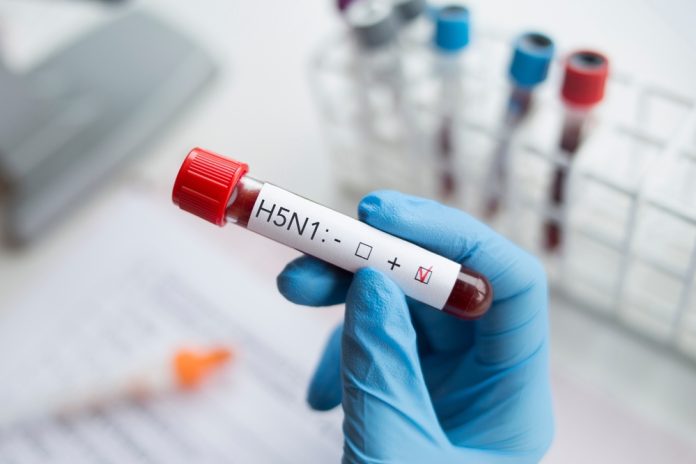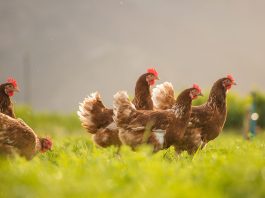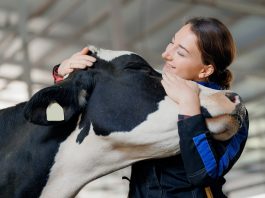No current bird flu vaccine meets the full criteria for deployment to tackle the UK’s ongoing outbreak, according to the Avian Influenza Vaccination Task Force.
Currently, bird flu vaccines are not permitted for poultry and captive birds.
As the UK enters the fourth season of regular outbreaks of highly pathogenic bird flu, there is a growing call among farmers for control measures that extend beyond just ‘robust biosecurity’.
Bird flu vaccines as a preventative measure
The AI Task Force, a joint industry and cross-party government group, was established to explore these options and develop recommendations for using vaccination in poultry as a preventive measure against HPAI.
Given the worsening UK disease situation and global developments, the task force has provided an update detailing its activities, current policy, vaccine development and approval processes, trade implications, and next steps.
The joint statement is endorsed by the four devolved administrations, the Veterinary Medicines Directorate, the Animal Plant and Health Agency, and all major trade associations in the poultry sector.
Effective safeguards to control the disease
Currently, vaccination against bird flu in poultry and captive birds is not permitted except in some licensed zoos.
While vaccines can reduce mortality and clinical signs, they do not eliminate the risk of infection or transmission and may complicate detection, therefore increasing the risk of spreading the virus.
The development of a Differentiating Infected from Vaccinated Animals (DIVA) strategy to monitor vaccinated flocks and distinguish between field and vaccine strains remains a core focus of the task force and is subject to ongoing research.
Discussions are also taking place regarding how the game bird industry may be integrated into a bird flu vaccine and surveillance programme.
Implementing a strategy like this is central to the UK’s ability to trade poultry products internationally, as the country must assure trade partners that effective safeguards are in place.
H5-subtype vaccines under review
Although vaccination is not a barrier to safe international trade, according to World Organisation for Animal Health (WOAH) guidelines, many countries impose restrictions on goods when vaccination has been used, and this practice is likely to continue.
Currently, there are two authorised bird flu vaccines in the UK, neither of which contains subtype H5N1 as an active component.
Several applications for H5-subtype vaccines are under assessment by the Veterinary Medicines Directorate (VMD), the authority responsible for approving the marketing of these pharmaceuticals.
Several HPAI vaccines have already received international approval, including one in the European Union that claims efficacy against H5.
The task force says it will analyse these vaccines, but the interim statement emphasises that a complete solution is not forthcoming.
The statement says: “Selecting the appropriate vaccine is a critical step when considering vaccination and will depend on various criteria relevant to the local situation. No current vaccine or vaccine technology fully meets all these criteria.”
More understanding about bird flu vaccines needed
Gary Ford, head of strategy at the British Free Range Egg Producers Association (BFREPA), said the statement raised awareness that, at this point, vaccination was not yet a complete solution.
“This winter has seen over 40 cases of HPAI, resulting in significant financial impacts, distress for affected businesses, and disruption across the poultry sector,” he said.
“This situation has sparked considerable interest in avian flu vaccines, both from the industry—where vaccines are routinely used to protect flocks from endemic diseases—and the media.
“As members of the joint industry and cross-government AI vaccination task force, we welcome this timely statement as an opportunity to highlight the opportunities and challenges associated with vaccination.”
He concluded: “Despite these challenges, BFREPA strongly supports vaccination as a key tool for protecting our flocks against this insidious disease, alongside stringent biosecurity measures.”





